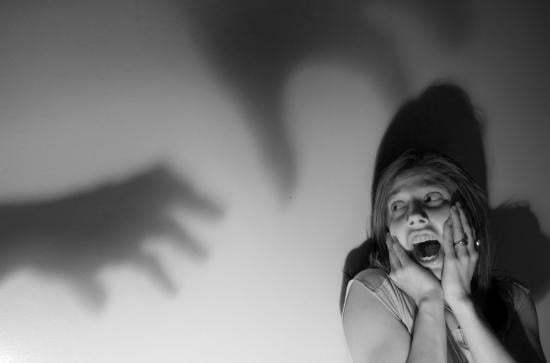Category: Psychology
Fear and Why We Enjoy it

Fear. It’s something all humans share in their arsenal of emotions and reactions. It’s a survival mechanism that we’ve evolved to have, and it’s what has kept us alive for close to up to 200 millennia. It’s a feeling that we both dread and revel in nowadays, especially during every spooky Halloween season. But why do we enjoy fear every fall season?
From horror movies to haunted houses, we all enjoy these activities, especially in groups of friends. Fear has turned from something so necessary for survival to something that’s required in for social acceptance. According to Kansas State University’s Don Saucier, since Halloween is a holiday that is so culturally embedded into our society, fear is practically interwoven in the very fabric of Halloween. It’s something that’s unavoidable. At this point in history, because we aren’t really fighting for our survival, participating in fear inducing activities is more than socially acceptable; it’s necessary especially because subconsciously we know we really aren’t in serious danger.
So what happens to your body when you experience fear? Sweating, temporary brain function reactions, respiration, and your heart and blood (among other reactions) are temporarily different during the time of the emotion and even after. Your amygdala releases chemicals that either make you confront your fear or run away. Your sweat actually smells differently from regular sweat and it’s said that it could enhance your alertness. Obviously heart rate and blood pressure increases which pump more blood to your muscles and lungs should your body choose to run away. Due to the increase blood flow, your respiration also increases so that there’s increase in oxygen to your blood. Reading all of this, you’d think, why in the world would we even enjoy these feelings when we react to fear? Well it really depends on the person. Those who seek out horror and fear probably have an adrenaline-seeking personality, and what better way to get that adrenaline than after watching a horror movie or getting frightened at a haunted house. The relief response after fear intensifies positive emotions and feel-good chemicals (like endorphins) are released into our brain.
To some extent, fear induces arousal when in an environment where the person feeling it feels out of danger – i.e. sweating, hand-shaking fun. So the next time you enter a haunted house or watch a horror movie, know that this survival mechanism no longer is a means for safety from danger but another way to induce excitement and fun with friends.
~Cindy Wu
Sources:
http://neurosciencenews.com/fear-psychology-social-standing-2956/
http://www.livescience.com/56691-the-science-of-fear.html
http://www.livescience.com/56682-the-anatomy-of-fear-infographic.html
http://online.csp.edu/blog/psychology/psychology-of-fear
Image Source:
https://www.maynoothuniversity.ie/sites/default/files/styles/ratio_2_3/public/assets/images/FEAR.jpg?itok=vBWci5ug